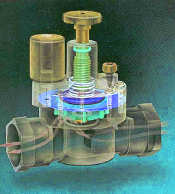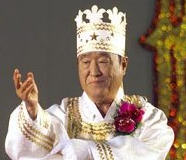 The Bureau of Industry and Security (“BIS”) yesterday published a final rule implementing changes proposed by The Australia Group to its Control List of Dual-Use Chemical Manufacturing Facilities and Equipment and Related Technology and Software. To implement one of the changes in question, the final rule amended ECCN 2B350.g which controls valves with a “nominal sizes” greater than 1.0 cm and which are made of certain specified alloys. The amendment adds a technical note stating:
The Bureau of Industry and Security (“BIS”) yesterday published a final rule implementing changes proposed by The Australia Group to its Control List of Dual-Use Chemical Manufacturing Facilities and Equipment and Related Technology and Software. To implement one of the changes in question, the final rule amended ECCN 2B350.g which controls valves with a “nominal sizes” greater than 1.0 cm and which are made of certain specified alloys. The amendment adds a technical note stating:
The ‘nominal size’ is defined as the smaller of the inlet and outlet port diameters.
As this blog has previously noted, the “nominal size” of a valve is the size under which the valve is marketed. That size may be, and usually is, different from both the outer and inner diameter of the valve. Various industry standards have been established for the inner and outer diameters of marketed under particular nominal sizes.
The technical note departs from these standards and establishes a new and arguably more ambiguous standard. When it refers to the “smaller” of the inlet and outlet “port diameters,” it does not mention whether it means the inner diameter of the bore of the valve or the outer diameter of its casing.
This change may be an effort to reflect a statement in the Related Controls section of ECCN 2A226 which states that:
For valves with different inlet and outlet diameters, the “nominal size” in 2A226 refers to the smallest diameter.
But the new note is not restricted to valves with different inlet and outlet diameters, but purports to change the definition of “nominal size” for all valves otherwise subject to ECCN 2B350. As a compliance matter, the safe thing to do is to measure valve by the larger diameter, namely the outer diameter, even though the purpose of the control would seem to make the inner diameter the most relevant parameter. Perhaps the confusion has occurred here because neither BIS or The Australia Group realized that the inner and outer diameters of a valve might be significantly different.

 Posted by
Posted by  Category:
Category: 

 Rev. Sun Myung Moon’s media arm, the Washington Times, has made a shocking discovery: lawyers represent clients. Washington Times reporter Jim McElhatton reveals this horrifying discovery in a
Rev. Sun Myung Moon’s media arm, the Washington Times, has made a shocking discovery: lawyers represent clients. Washington Times reporter Jim McElhatton reveals this horrifying discovery in a  Last week, in his
Last week, in his 
 For several years now the Bureau of Industry and Security (“BIS”) has had the statutory authority to impose a civil penalty of $250,000 per export violation but has yet impose anything near that fine. So when BIS finally whacks someone with a $2.5 million fine for 10 violations, you might assume that the person paying such a fine did something really terrible like exporting dual-use items to Iran that Iran could use in uranium enrichment facilities. But you would be wrong.
For several years now the Bureau of Industry and Security (“BIS”) has had the statutory authority to impose a civil penalty of $250,000 per export violation but has yet impose anything near that fine. So when BIS finally whacks someone with a $2.5 million fine for 10 violations, you might assume that the person paying such a fine did something really terrible like exporting dual-use items to Iran that Iran could use in uranium enrichment facilities. But you would be wrong.

